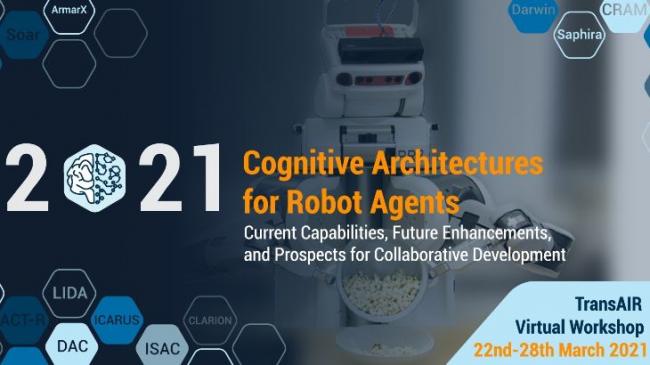
Description
The TransAIR project is part of the international 'The Future of Work' campaign, funded by the Federal Ministry of Education and Research (BMBF) in Germany.
As part of this project, the University of Bremen, Germany, will host a virtual workshop on topics at the interface of artificial intelligence, cognitive science and neuroscience from 22–28 March. Scientists and practitioners from the USA and Germany, as well as other EU countries, will discuss cognitive architecture for robots suitable for everyday use.
Background
The research field of cognitive architecture is one of the most important in the development of robots suitable for everyday use, which are intended to support us with human-like cognitive abilities, such as problem solving in highly complex, health-threatening, or life-threatening situations.
It is not easy to convert our human cognitive abilities such as memory, language, perception, problem solving and other competences into a form strongly formalised enough to be the basis of a computer program, however. Numerous questions need to be answered, such as:
What are the requirements of building an intelligent system? And which components does it need to interact competently with its environment?
The 'Cognitive Architecture for Robot Agents: Current Capabilities, Future Enhancements, and Prospects for Collaborative Development' virtual workshop aims to provide answers to these questions. The goal of the workshop is to open up cross-disciplinary collaboration and perspectives for collaborative development, ideally in an open-source environment.
Time: Due to the virtual workshop format and the attendance of international audiences, the live sessions are scheduled from 9am–12pm EDT/3pm–6pm CET.
Register here.
The number of participants is limited.
Contact:
Christian Müller
Institute of Artificial Intelligence, University of Bremen, Germany
e-mail: Christian.mueller [at] uni-bremen.de